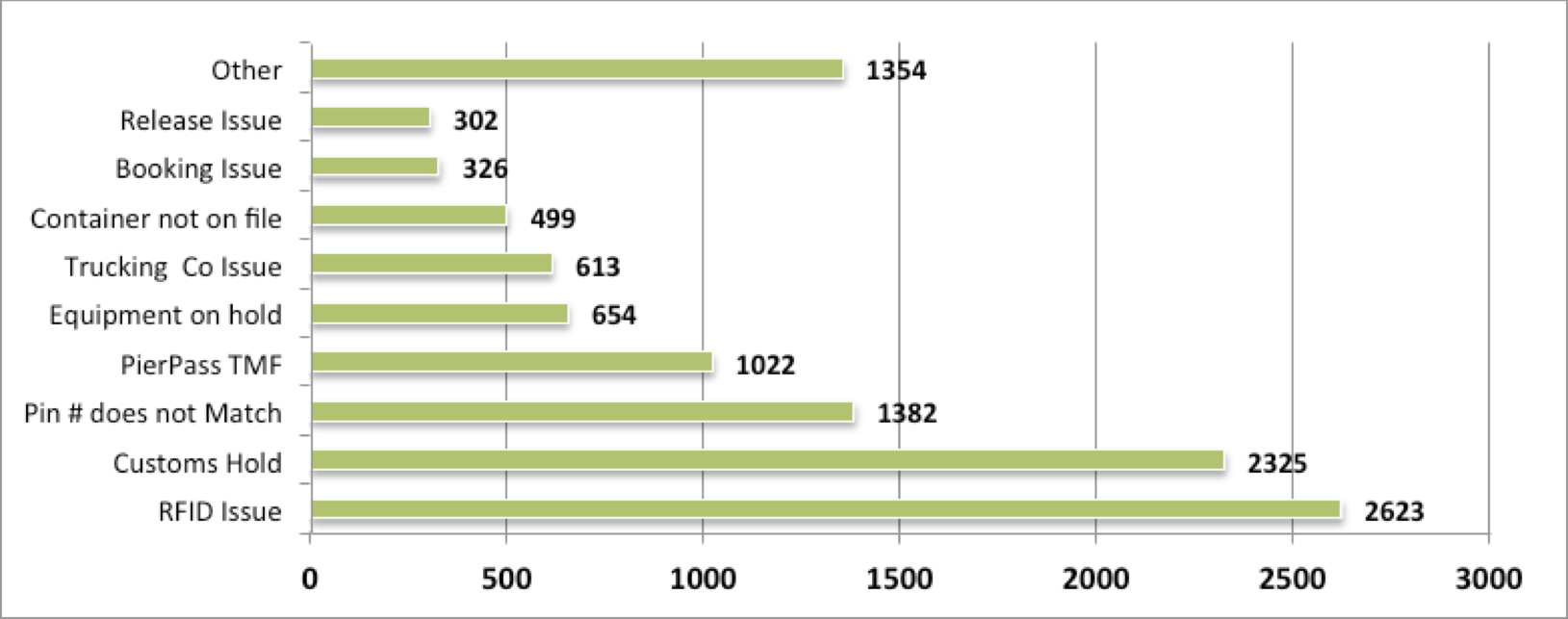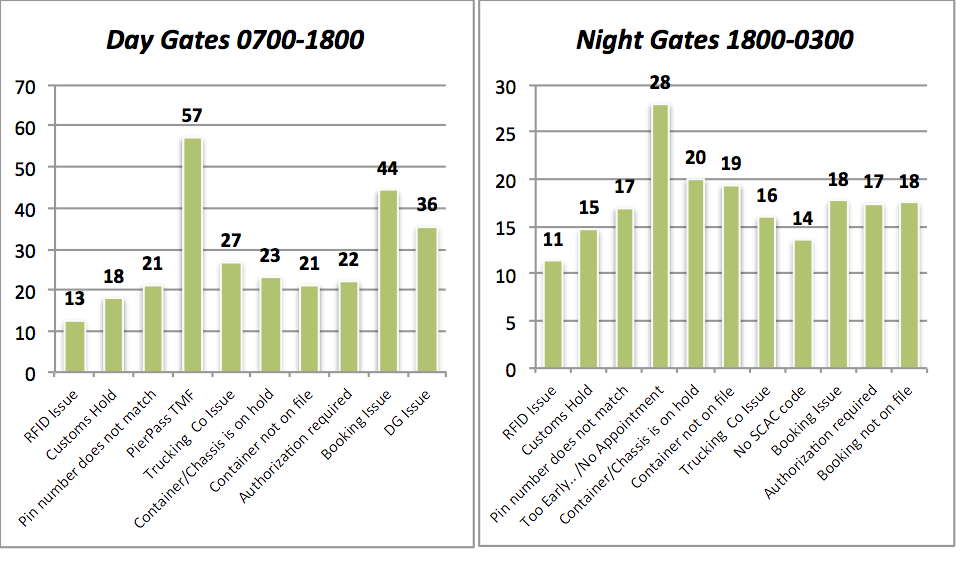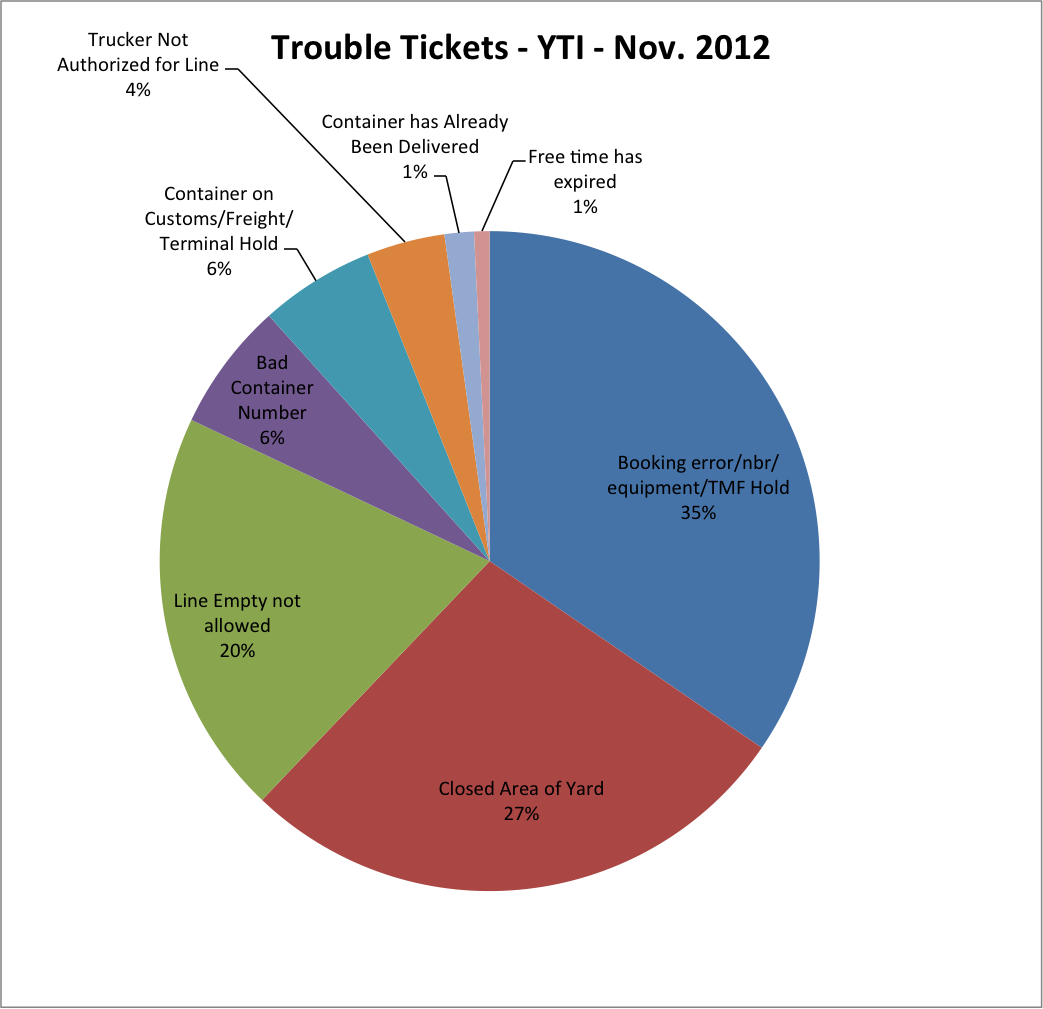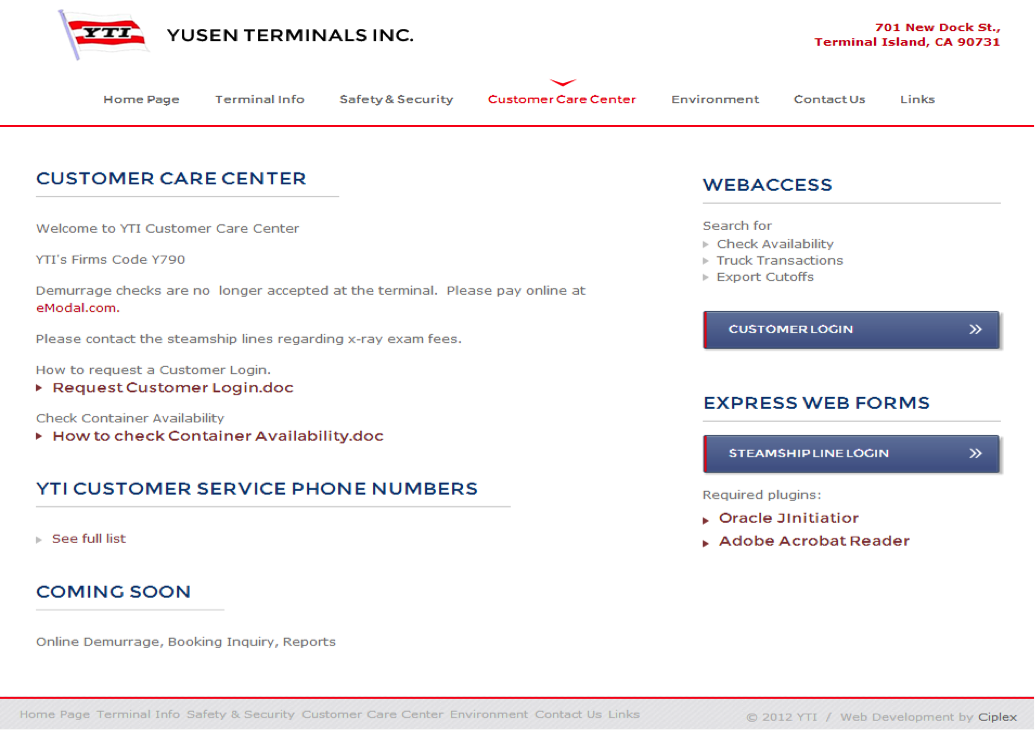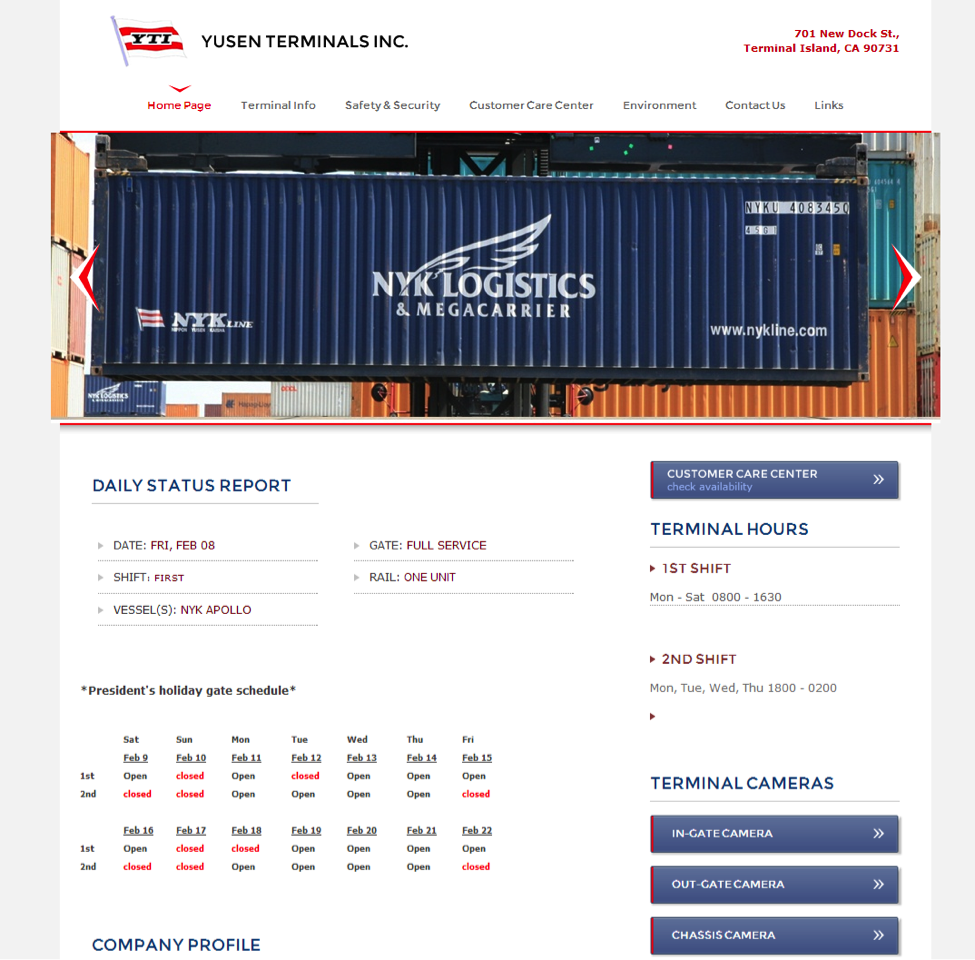To increase understanding of the truck turn time issue at the Ports of Los Angeles and Long Beach, PierPass has created two important new pieces of content.
The first is a video, “A Day in the Life of the Terminal Gates at the Ports of Los Angeles and Long Beach,” available above and through this link: http://youtu.be/dPvYq4rZI00
The second is an op-ed article that was published November 7 in the Journal of Commerce, available below and through this link: http://goo.gl/b9EWTu
Fact and Fiction at LA-Long Beach
Bruce Wargo | Nov 07, 2013 11:30AM EST
The Journal of Commerce
The ports of Los Angeles and Long Beach have made tremendous strides in accelerating container movement in and out of the marine terminals. Most significantly, night and Saturday off-peak shifts run by PierPass at the 13 port terminals now handle as many as 17,000 container moves per shift compared with less than 15,000 for the average day shift — leaving the gridlock of 2004 a fast-fading memory.
Our terminals are some of the busiest and most productive in the world. In fact, Long Beach was tied for North America’s most productive port in a July 2013 Journal of Commerce report. Together, the two adjacent ports handle about 40 percent of all U.S. imports, while retaining plenty of spare capacity to handle volume growth.
Despite all that, some trucking interests continue to traffic in misinformation about productivity at the ports. At a recent meeting of the Long Beach Board of Harbor Commissioners, for example, representatives of the trucking community said typical turn times are two or three hours. With all due respect, that is simply false.
Here are the facts: The average in-terminal turn time across the 13 terminals in the ports during September 2013 was 36.4 minutes during day shifts and 41.1 minutes during night shifts, according to RFID tracking data. Adding 20 minutes for the average queue outside the gates, the turn takes an hour.
In 2011, the ports, terminals and trucking community published a comprehensive turn time study at the ports using GPS to track trucks. The study found:
- The median wait time outside the gates was 20 minutes.
- Only 9 percent of waits in queues outside the gates were more than an hour.
- Only 3 percent of visits took three hours or more, including queue time and terminal time.
No system can eliminate all lines. From congested freeways during rush hour to movie ticket queues on a Friday night, lines form when everyone tries to use the same infrastructure at the same time. Container terminals are no different.
Every day, some trucks line up as much as 90 minutes before the gates open for the day and night shifts, guaranteeing themselves a long wait and creating a backlog. It’s like showing up at a restaurant 90 minutes before it opens and then complaining about the long wait. Trucks can avoid the longest lines of the day by avoiding the start of the shifts.
Those backlogs clear up quickly once the gates open. In fact, many terminals hire extra labor to open the morning and night gates an hour early — often at 7 a.m. rather than 8 a.m., and at 5 p.m. rather than 6 p.m.
During much of the day and night shifts, there is little congestion at the terminals. Although conditions vary, truckers can typically find the shortest lines by arriving from 9 a.m. to noon, 2 p.m. to 4 p.m., 7:30 p.m. to 9:30 p.m. and 11 p.m. to 2 a.m. That’s 10 hours a day when there are virtually no lines to enter the terminal gates.
To help trucking companies gauge congestion levels and make informed decisions on when to send drivers, PierPass has added live camera feeds of terminal gates to our Web site, pierpass.org. These feeds typically get more than 2,000 views a day.
In another initiative to keep trucks moving quickly, we are working with terminals and trucking companies to reduce the number of transaction problems. These problems — exceptions from normal processes that result in the issuance of “trouble tickets” — on average add about an hour to the turn time, according to a 2011 report by the National Cooperative Freight Research Program, and are responsible for many of the transactions that take the most time. Less-experienced drivers and companies that don’t serve the port regularly receive trouble tickets much more frequently, the NCFRP found.
Among a variety of causes, transaction problems happen commonly when truckers arrive to pick up import containers that are on hold. Containers can be put on hold for a variety of reasons, including U.S. Customs release, agricultural inspection and unpaid steamship charges or traffic-mitigation fees. Another common trouble ticket cause is when trucks deliver export containers with incorrect booking number information.
In these and other cases, trucking companies can avoid trouble tickets by checking the terminals’ online systems before prematurely sending a truck to the gates. APL Terminal in Los Angeles estimates that 65 percent of all trouble tickets can be prevented by checking online before sending a truck to the terminal.
We understand and share truck drivers’ desire to keep traffic moving as quickly as possible. But we must acknowledge the faulty logic behind the idea that truckers could move more containers and earn more money if turn times were faster. All import and export containers at the ports already are being picked up and delivered. There are no extra containers waiting to be picked up. The only ways truckers can get more turns is by increasing overall cargo volume or reducing the number of trucks.
This isn’t to say terminals don’t want to reduce turn times. In fact, we need to find ways to speed container movement if we’re going to be able to handle the increased cargo volume expected by 2020. The terminals are actively evaluating ways to change port processes to increase productivity. Watch this space.
Bruce Wargo is president and CEO of PierPass Inc.

